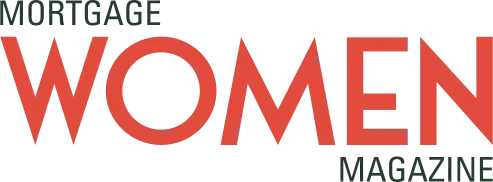BLOG
Mortgage, Real Estate, and Entrepreneurship


Mortgage Broker 101: What They Do & How to Start Your Own Brokerage
Mortgage Broker 101: What They Really Do and How to Become One
Let me be honest with you—the mortgage industry can feel like trying to learn a foreign language. Between confusing acronyms, complex company structures, and everyone giving you conflicting advice, it’s no wonder people feel stuck before they even start.
If you’ve been thinking about becoming a loan officer, getting your NMLS license, or even starting your own mortgage company, I want you to stop and take a breath. You don’t need to have all the answers right now. What you need is a crash course—a Mortgage Broker 101 breakdown that makes this industry simple and clear.
That’s what I’m giving you today. We’re going to strip away the jargon, talk about the main players in the mortgage space, what brokers actually do, and how you can build a business in this industry that gives you freedom and control. Whether you’re just starting out or looking for clarity, I promise you’ll walk away from this with confidence.
The Five Big Players in the Mortgage Industry
When people ask me where they should start in the mortgage world, I always say: “First, you need to know who’s who.” Because not every mortgage company is the same, and the path you take depends on which model fits you best.
Here are the five major types of mortgage companies:
1. FDIC Banks
Think Chase, Wells Fargo, or Bank of America. These are your traditional banks. They lend their own money, are heavily regulated, and mortgages are just one piece of their overall business. Loan officers here don’t go through the same NMLS licensing requirements as in other models.
👉 Safe and stable, but limited in options.
2. Retail Mortgage Lenders
Now we’re talking about companies like LoanDepot or Guaranteed Rate. These lenders are focused almost exclusively on mortgages. Loan officers must be NMLS licensed, and they lend their own funds.
👉 More specialized than banks, but still limited to their own products.
3. Mortgage Brokers
This is where the entrepreneurial path starts to open up. Mortgage brokers don’t lend their own money. Instead, they partner with wholesale lenders to shop for the best loan programs and rates for their clients.
👉 Think of brokers as the “matchmakers” of the mortgage world—connecting borrowers with the right wholesale lenders.
4. Correspondent Lenders
This is often the next step up for successful brokers. Correspondent lenders do lend their own money initially, but then sell those loans to larger investors.
👉 It’s a hybrid model—more control, more profit, but still reliant on bigger players.
5. Wholesale Lenders
Behind the scenes, wholesale lenders are the ones actually funding the loans that brokers bring them. They take on the risk, while brokers build the relationships and bring in the clients.
👉 Think of them as the “engine” powering the broker channel.
Quick Recap: Banks are safe but limited. Retail lenders are specialized but tied to their own products. Brokers offer freedom and choice. Correspondent lenders add scale. Wholesale lenders provide the capital.
So, What Does a Mortgage Broker Actually Do?
I get asked this question all the time, and the simplest way I can explain it is this: a mortgage broker is your client’s advocate.
Here’s what that looks like:
We don’t fund loans ourselves—we shop with wholesale lenders.
We compare multiple loan programs to find the best fit.
We guide the client from application to closing.
We negotiate for better rates and terms.
We stay licensed, compliant, and educated so we can keep serving at the highest level.
A great way to think of it is like a travel agent. If you book directly with one airline, you only get their flights. But if you work with a travel agent, you get access to multiple airlines, routes, and prices. That’s exactly what a broker does in the mortgage space.
Broker vs. Retail: Which Path Is Right for You?
If you’re deciding between working at a retail lender or becoming a broker, ask yourself this:
👉 Do I want to be an employee—or do I want to be an owner?
Retail lenders give you structure and stability, but you’re limited to their products. As a broker, you get freedom, flexibility, and the opportunity to build long-term equity in your business.
It really comes down to how much control you want over your career.
How to Become a Mortgage Broker (Step-by-Step)
If you’re nodding your head and thinking, “Okay Megan, I want to explore the broker path,” here’s the roadmap:
Get licensed. Pass your NMLS test and meet your state’s requirements.
Gain experience. Many brokers start at retail lenders or existing brokerages.
Form your business. Choose your structure (LLC, S-Corp, etc.), register it, and get state approval.
Build lender relationships. Sign up with wholesale lenders.
Set up systems. You’ll need processing, compliance, back-office support, and technology.
Grow. Recruit LOs, hire processors, and scale your operations.
Yes, it takes work. But you’re building equity in something you own—not just a commission check.
The Pros and Cons of Being a Mortgage Broker
No sugarcoating—here’s the real talk.
Pros
More loan options and better rates for clients.
Freedom to run your business your way.
Opportunity to build long-term wealth.
Stronger client trust because you represent them, not a lender.
Cons
Startup costs and systems to manage.
More regulations to navigate.
Steeper learning curve without support.
This is exactly why I built solutions like our Mortgage Broker Concierge and Co/LAB franchise model—to give new brokers the tools, mentorship, and systems I wish I had when I was starting out.
Why Mortgage Brokers Matter in 2025
Today’s clients want transparency. They want options. They want someone in their corner who isn’t tied to one bank or one lender. That’s why brokers are thriving.
If you’ve ever wanted more freedom, flexibility, and the chance to build real equity, the broker path is worth exploring.
Frequently Asked Questions About Becoming a Mortgage Broker
Q1: Do I need experience before becoming a broker?
Not necessarily. Many people start as retail loan officers to learn the basics first, but you can go straight into brokering if you’re prepared to handle the business side.
Q2: How much does it cost to start a mortgage brokerage?
Startup costs vary by state, but expect to spend anywhere from $10,000–$25,000 on licensing, compliance, systems, and initial setup.
Q3: Is being a broker more profitable than being a retail loan officer?
It can be. Brokers typically earn higher margins because they have access to more competitive pricing and control over their business. Profitability depends on how you run your operations.
Q4: What’s the biggest challenge new brokers face?
Systems and compliance. Many new brokers underestimate the amount of back-office work needed to stay compliant and efficient. That’s why joining a community or using a broker support solution is so valuable.
Q5: Can I run a brokerage part-time?
It’s possible, but not recommended. Running a brokerage requires time, attention, and compliance oversight. If you want to build long-term success, it should be a full-time commitment.
Final Thoughts
The mortgage industry doesn’t have to be mysterious. Once you understand the main players, what brokers do, and how to get started, it’s actually a path filled with opportunity.
If you’ve been looking for more freedom and control in your career, becoming a mortgage broker might be exactly what you’ve been searching for.
👉 Ready to explore it further? Book a call with me and my team and let’s talk about your next step. You don’t have to figure this out on your own—we’ve built the systems, support, and roadmap to help you launch faster and smarter.
Megan Marsh
CEO/ FOUNDER of Co/LAB Broker Concierge
In Case You Missed Our Previous Blogs & YouTube Videos..
Read Here: Break Through the Income Ceiling: Scale Your Mortgage Brokerage & LO Business
This blog explores why so many top-producing loan officers and broker owners hit an income ceiling—and how to break through it. From shifting out of a scarcity mindset, to outsourcing non-revenue tasks, to building scalable systems, you’ll learn the strategies that transform a hustle-driven job into a sustainable, profitable brokerage. If you’re ready to stop capping your income and start building a true business, this guide shows you how to scale smarter.
Read Here: 3 Proven Mortgage Broker Business Models: How to Choose the Right One for Profitability
Choosing the right mortgage broker business model can mean the difference between building a profitable company—or losing years of effort and six figures in income. In this article, I break down the 3 proven mortgage broker models working today, with real numbers, pros and cons, and a side-by-side comparison to help you find the one that matches your strengths, budget, and long-term goals.
Mortgage Broker Support
Need help starting your mortgage business? Our Mortgage Broker Concierge Team is here to assist you!
If you’re curious about how we can help you simplify your operations beyond what our videos offer and want to know how you can make launching or running your brokerage stress-free, the link below explains everything. No fluff, no “exclusive training” gimmicks—just a straightforward way to see how we work with brokers to take backend tasks off their plates. Check it out here: https://colablendingfranchise.com/book-a-discovery-call

Mortgage Broker 101: What They Do & How to Start Your Own Brokerage
Mortgage Broker 101: What They Really Do and How to Become One
Let me be honest with you—the mortgage industry can feel like trying to learn a foreign language. Between confusing acronyms, complex company structures, and everyone giving you conflicting advice, it’s no wonder people feel stuck before they even start.
If you’ve been thinking about becoming a loan officer, getting your NMLS license, or even starting your own mortgage company, I want you to stop and take a breath. You don’t need to have all the answers right now. What you need is a crash course—a Mortgage Broker 101 breakdown that makes this industry simple and clear.
That’s what I’m giving you today. We’re going to strip away the jargon, talk about the main players in the mortgage space, what brokers actually do, and how you can build a business in this industry that gives you freedom and control. Whether you’re just starting out or looking for clarity, I promise you’ll walk away from this with confidence.
The Five Big Players in the Mortgage Industry
When people ask me where they should start in the mortgage world, I always say: “First, you need to know who’s who.” Because not every mortgage company is the same, and the path you take depends on which model fits you best.
Here are the five major types of mortgage companies:
1. FDIC Banks
Think Chase, Wells Fargo, or Bank of America. These are your traditional banks. They lend their own money, are heavily regulated, and mortgages are just one piece of their overall business. Loan officers here don’t go through the same NMLS licensing requirements as in other models.
👉 Safe and stable, but limited in options.
2. Retail Mortgage Lenders
Now we’re talking about companies like LoanDepot or Guaranteed Rate. These lenders are focused almost exclusively on mortgages. Loan officers must be NMLS licensed, and they lend their own funds.
👉 More specialized than banks, but still limited to their own products.
3. Mortgage Brokers
This is where the entrepreneurial path starts to open up. Mortgage brokers don’t lend their own money. Instead, they partner with wholesale lenders to shop for the best loan programs and rates for their clients.
👉 Think of brokers as the “matchmakers” of the mortgage world—connecting borrowers with the right wholesale lenders.
4. Correspondent Lenders
This is often the next step up for successful brokers. Correspondent lenders do lend their own money initially, but then sell those loans to larger investors.
👉 It’s a hybrid model—more control, more profit, but still reliant on bigger players.
5. Wholesale Lenders
Behind the scenes, wholesale lenders are the ones actually funding the loans that brokers bring them. They take on the risk, while brokers build the relationships and bring in the clients.
👉 Think of them as the “engine” powering the broker channel.
Quick Recap: Banks are safe but limited. Retail lenders are specialized but tied to their own products. Brokers offer freedom and choice. Correspondent lenders add scale. Wholesale lenders provide the capital.
So, What Does a Mortgage Broker Actually Do?
I get asked this question all the time, and the simplest way I can explain it is this: a mortgage broker is your client’s advocate.
Here’s what that looks like:
We don’t fund loans ourselves—we shop with wholesale lenders.
We compare multiple loan programs to find the best fit.
We guide the client from application to closing.
We negotiate for better rates and terms.
We stay licensed, compliant, and educated so we can keep serving at the highest level.
A great way to think of it is like a travel agent. If you book directly with one airline, you only get their flights. But if you work with a travel agent, you get access to multiple airlines, routes, and prices. That’s exactly what a broker does in the mortgage space.
Broker vs. Retail: Which Path Is Right for You?
If you’re deciding between working at a retail lender or becoming a broker, ask yourself this:
👉 Do I want to be an employee—or do I want to be an owner?
Retail lenders give you structure and stability, but you’re limited to their products. As a broker, you get freedom, flexibility, and the opportunity to build long-term equity in your business.
It really comes down to how much control you want over your career.
How to Become a Mortgage Broker (Step-by-Step)
If you’re nodding your head and thinking, “Okay Megan, I want to explore the broker path,” here’s the roadmap:
Get licensed. Pass your NMLS test and meet your state’s requirements.
Gain experience. Many brokers start at retail lenders or existing brokerages.
Form your business. Choose your structure (LLC, S-Corp, etc.), register it, and get state approval.
Build lender relationships. Sign up with wholesale lenders.
Set up systems. You’ll need processing, compliance, back-office support, and technology.
Grow. Recruit LOs, hire processors, and scale your operations.
Yes, it takes work. But you’re building equity in something you own—not just a commission check.
The Pros and Cons of Being a Mortgage Broker
No sugarcoating—here’s the real talk.
Pros
More loan options and better rates for clients.
Freedom to run your business your way.
Opportunity to build long-term wealth.
Stronger client trust because you represent them, not a lender.
Cons
Startup costs and systems to manage.
More regulations to navigate.
Steeper learning curve without support.
This is exactly why I built solutions like our Mortgage Broker Concierge and Co/LAB franchise model—to give new brokers the tools, mentorship, and systems I wish I had when I was starting out.
Why Mortgage Brokers Matter in 2025
Today’s clients want transparency. They want options. They want someone in their corner who isn’t tied to one bank or one lender. That’s why brokers are thriving.
If you’ve ever wanted more freedom, flexibility, and the chance to build real equity, the broker path is worth exploring.
Frequently Asked Questions About Becoming a Mortgage Broker
Q1: Do I need experience before becoming a broker?
Not necessarily. Many people start as retail loan officers to learn the basics first, but you can go straight into brokering if you’re prepared to handle the business side.
Q2: How much does it cost to start a mortgage brokerage?
Startup costs vary by state, but expect to spend anywhere from $10,000–$25,000 on licensing, compliance, systems, and initial setup.
Q3: Is being a broker more profitable than being a retail loan officer?
It can be. Brokers typically earn higher margins because they have access to more competitive pricing and control over their business. Profitability depends on how you run your operations.
Q4: What’s the biggest challenge new brokers face?
Systems and compliance. Many new brokers underestimate the amount of back-office work needed to stay compliant and efficient. That’s why joining a community or using a broker support solution is so valuable.
Q5: Can I run a brokerage part-time?
It’s possible, but not recommended. Running a brokerage requires time, attention, and compliance oversight. If you want to build long-term success, it should be a full-time commitment.
Final Thoughts
The mortgage industry doesn’t have to be mysterious. Once you understand the main players, what brokers do, and how to get started, it’s actually a path filled with opportunity.
If you’ve been looking for more freedom and control in your career, becoming a mortgage broker might be exactly what you’ve been searching for.
👉 Ready to explore it further? Book a call with me and my team and let’s talk about your next step. You don’t have to figure this out on your own—we’ve built the systems, support, and roadmap to help you launch faster and smarter.
Megan Marsh
CEO/ FOUNDER of Co/LAB Broker Concierge
In Case You Missed Our Previous Blogs & YouTube Videos..
Read Here: Break Through the Income Ceiling: Scale Your Mortgage Brokerage & LO Business
This blog explores why so many top-producing loan officers and broker owners hit an income ceiling—and how to break through it. From shifting out of a scarcity mindset, to outsourcing non-revenue tasks, to building scalable systems, you’ll learn the strategies that transform a hustle-driven job into a sustainable, profitable brokerage. If you’re ready to stop capping your income and start building a true business, this guide shows you how to scale smarter.
Read Here: 3 Proven Mortgage Broker Business Models: How to Choose the Right One for Profitability
Choosing the right mortgage broker business model can mean the difference between building a profitable company—or losing years of effort and six figures in income. In this article, I break down the 3 proven mortgage broker models working today, with real numbers, pros and cons, and a side-by-side comparison to help you find the one that matches your strengths, budget, and long-term goals.
Mortgage Broker Support
Need help starting your mortgage business? Our Mortgage Broker Concierge Team is here to assist you!
If you’re curious about how we can help you simplify your operations beyond what our videos offer and want to know how you can make launching or running your brokerage stress-free, the link below explains everything. No fluff, no “exclusive training” gimmicks—just a straightforward way to see how we work with brokers to take backend tasks off their plates. Check it out here: https://colablendingfranchise.com/book-a-discovery-call
Are You Ready...
to Start Building a Legacy and Not Just a Business?
AS FEATURED IN:







Co/LAB Corporate
8795 Peach Street,
Erie, PA 16509
Company
Resources
Learn more about who we are, what we do, and how we can help you by visiting our other company websites.
www.becomeamortgagebroker.info





